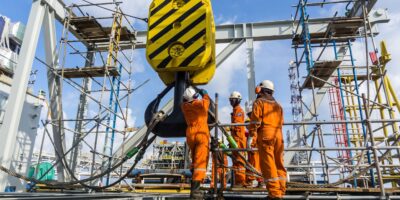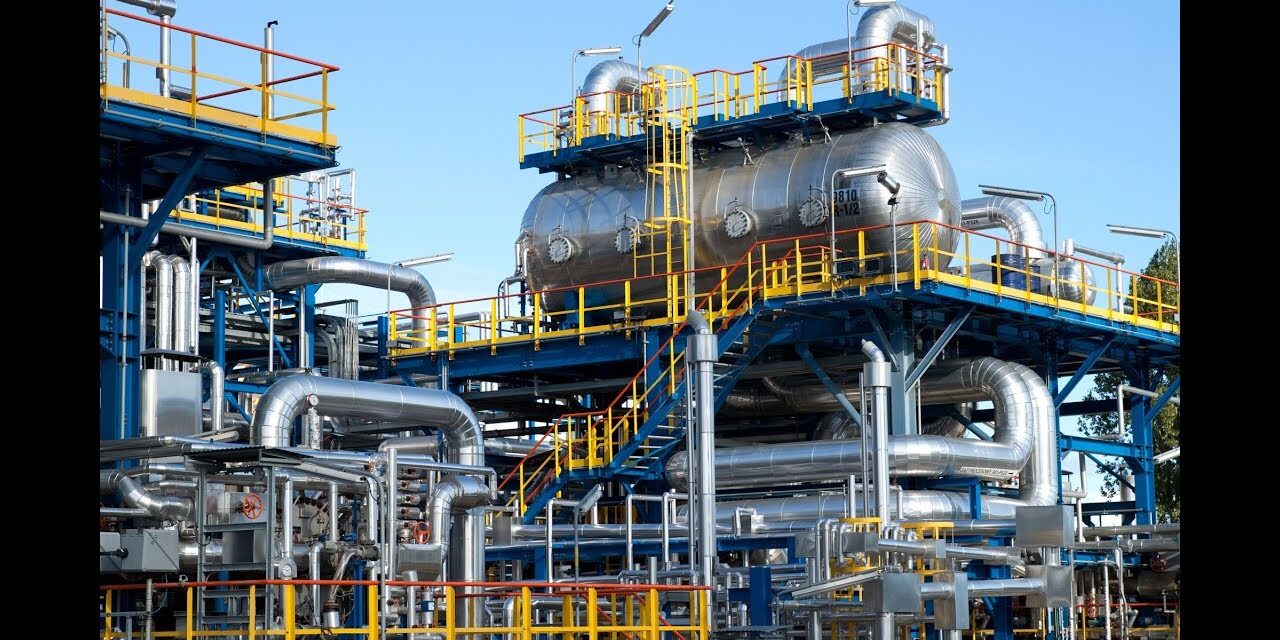Introduction:
As a key player in the global energy landscape, Qatar’s oil and gas industry stands as a beacon of innovation and resilience. At the heart of this dynamic sector lies the critical need for skilled manpower to drive operations, ensure safety, and uphold efficiency standards. In this blog, we explore the indispensable role of oil and gas manpower supply Qatar in supporting the workforce requirements of Qatar’s oil and gas industry, delving into the challenges, solutions, and emerging trends shaping this vital partnership.
The Significance of Manpower Supply Services in the Oil and Gas Industry:
Qatar’s oil and gas industry is characterized by its complexity, scale, and unwavering commitment to excellence. From exploration and production to refining and distribution, each facet of the sector demands a diverse range of specialized skills and expertise. Manpower supply services serve as the linchpin that connects these requirements with the talent pool, ensuring that oil and gas companies have access to the right people, with the right skills, at the right time. Whether it’s engineering professionals, project managers, technicians, or safety specialists, manpower supply firms play a pivotal role in sourcing, screening, and deploying qualified personnel to meet the industry’s ever-evolving needs. Qatar is home to notable oil and gas companies, with Qatar Petroleum standing out as a key player. As the state-owned corporation overseeing all aspects of the industry, Qatar Petroleum drives major projects like the North Field Expansion, enhancing the nation’s LNG production. Joint ventures like RasGas and Qatargas, in collaboration with international partners, further solidify Qatar’s position as a global LNG leader, showcasing its commitment to sustainable energy development and economic growth.
Here are some of the important manpower required for an oil and gas industry
- Petroleum Engineers: Responsible for designing and overseeing the extraction of oil and gas from reservoirs, optimizing production techniques, and ensuring efficient well operations.
- Drilling Engineers: Tasked with planning and executing drilling operations, including well design, casing selection, and drilling fluid management, to safely extract hydrocarbons from underground formations.
- Geologists and Geophysicists: Provide expertise in identifying potential oil and gas reserves, analyzing geological data, and interpreting seismic surveys to locate drilling prospects and assess reservoir characteristics.
- Production Technicians: Operate and maintain equipment such as pumps, separators, and compressors to facilitate the extraction, processing, and transportation of oil and gas from wells to refineries or distribution centers.
- Pipeline Operators: Monitor and control the flow of oil and gas through pipelines, ensuring safety, integrity, and regulatory compliance while optimizing throughput and minimizing downtime.
- Process Engineers: Design and optimize the operation of refining facilities, including distillation units, catalytic crackers, and gas processing plants, to convert crude oil into marketable products such as gasoline, diesel, and petrochemicals.
- Health, Safety, and Environment (HSE) Specialists: Develop and implement safety protocols, environmental management plans, and emergency response procedures to mitigate risks and ensure compliance with regulatory requirements.
- Instrumentation and Control Technicians: Install, calibrate, and maintain control systems, sensors, and instrumentation devices to monitor and regulate the operation of oil and gas facilities, ensuring optimal performance and safety.
- Mechanical and Electrical Engineers: Provide technical expertise in maintaining and repairing rotating equipment, such as pumps, turbines, and compressors, as well as electrical systems and power distribution networks.
- Logistics and Supply Chain Managers: Coordinate the transportation, storage, and distribution of oil and gas products, optimizing supply chain efficiency, and ensuring timely delivery to customers while managing inventory levels and logistics costs.
- Roustabouts: Perform general labor tasks on drilling rigs, production platforms, and construction sites, including lifting heavy equipment, assembling piping systems, and maintaining cleanliness and orderliness in work areas.
- Welders: Specialized in joining metal components using welding techniques such as arc welding, MIG welding, and TIG welding, to fabricate and repair structural elements, pipelines, and pressure vessels in oil and gas facilities.
- Pipefitters: Install, repair, and maintain piping systems, valves, and fittings in oil and gas infrastructure, ensuring proper alignment, leak-free connections, and compliance with engineering specifications and safety standards.
- Equipment Operators: Operate heavy machinery and vehicles, such as cranes, forklifts, bulldozers, and excavators, to transport materials, load and unload cargo, and perform earthmoving and construction tasks at oil and gas sites.
- Scaffolders: Erect and dismantle scaffolding structures to provide safe access and support for maintenance activities, inspection work, and construction projects on offshore platforms, refineries, and petrochemical plants.
- Painters and Blasters: Apply protective coatings and surface treatments to equipment, pipelines, and structures to prevent corrosion, extend asset lifespan, and maintain aesthetic appearance in harsh environments.
- Insulation Technicians: Install thermal and acoustic insulation materials on equipment, piping, and process vessels to regulate temperature, reduce heat loss, and minimize noise emissions in oil and gas facilities.
- Electricians: Assist in the installation, repair, and maintenance of electrical systems, lighting fixtures, and control panels, ensuring safe and reliable operation of power distribution networks and equipment in industrial settings.
- Mechanical Helpers: Support mechanical technicians and engineers in tasks such as equipment assembly, disassembly, lubrication, and troubleshooting, contributing to the smooth operation of machinery and mechanical systems.
- Safety Attendants: Monitor work activities, enforce safety protocols, and provide emergency response assistance to prevent accidents, injuries, and incidents on oil and gas worksites, promoting a culture of safety and compliance.
Challenges and Solutions:
Navigating the workforce challenges inherent to Qatar’s oil and gas sector is no small feat. The industry’s dynamic nature, coupled with fluctuating market conditions and regulatory requirements, presents a myriad of challenges for manpower supply services. From ensuring compliance with stringent safety standards and industry regulations to addressing the cyclical nature of project-based employment, service providers must navigate a complex landscape with precision and agility. To mitigate these challenges, manpower supply firms employ a strategic blend of talent forecasting, proactive recruitment, and ongoing training and development initiatives. By fostering long-term partnerships with clients and maintaining a keen understanding of industry trends, these firms are better equipped to anticipate and address the evolving oil and gas manpower supply qatar .
Emerging Trends and Opportunities:
In an era of digital transformation and sustainability, the oil and gas industry is undergoing a profound evolution, driving a shift in workforce dynamics and skill requirements. Manpower supply services are at the forefront of this transformation, embracing emerging technologies such as data analytics, artificial intelligence, and remote monitoring to enhance operational efficiency and optimize workforce management. Moreover, with a growing emphasis on environmental stewardship and energy transition, there is an increasing demand for talent with expertise in renewable energy, carbon capture, and emissions reduction strategies. Manpower supply firms are seizing this opportunity to diversify their service offerings and support the industry’s transition towards a more sustainable future.
Conclusion:
In conclusion, the symbiotic relationship between manpower supply services and Qatar’s oil and gas industry is essential for driving innovation, ensuring operational excellence, and sustaining long-term growth. By aligning their strategies with the evolving needs of the sector, manpower supply firms can continue to serve as strategic partners, empowering oil and gas companies to overcome workforce challenges and seize opportunities in an ever-changing landscape. As Qatar reaffirms its commitment to energy leadership and sustainability, the collaboration between industry stakeholders and manpower supply services will remain crucial in shaping the future of the nation’s oil and gas sector.











